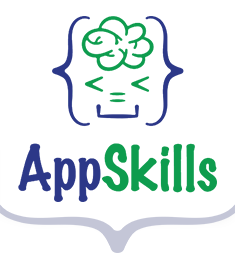Web technology evolves at a pace that never fails to astonish. With over 1.2 billion websites online in 2024 and more than 28 million developers worldwide, innovation in web technologies shows no signs of slowing down. For developers, staying at the forefront of this evolution is crucial—not just for advancing one’s skills but also for securing new developer jobs in this dynamic field.
From the early days of static HTML pages to today’s complex web applications, the evolution of web technology has largely been driven by the need for faster, more user-friendly digital experiences. But what lies ahead? This blog explores current trends, emerging technologies, and predictions for the future—helping developers thrive in a landscape filled with endless possibilities.
Current Trends in Web Technology
The world of web development is driven by trends that shape how developers build, test, and deploy modern web applications. Whether it’s adopting the latest frameworks or using cutting-edge design patterns, developers are constantly reevaluating their toolkits.
Frameworks Leading the Way
Frameworks streamline workflows and boost productivity. Currently, frameworks like React, Vue.js, and Angular dominate the development landscape. React, for instance, powers applications for global giants like Facebook and Airbnb, with its component-based architecture ensuring agile and scalable development.
On the backend, Node.js has become the go-to choice for developers who want to leverage server-side JavaScript.
The New Era of Programming Languages
Languages like Python continue to extend their reign, but others such as TypeScript are swiftly climbing the ranks. TypeScript, often deemed a ‘developer’s delight’, offers static typing that makes large-scale applications more maintainable. Its rapid adoption reflects developers’ growing need for scalable, error-free codebases.
Additionally, there is rising curiosity about languages designed to solve specific challenges. For example, WebAssembly enables near-native performance on the browser, reducing the gap between desktop and web experiences.
Tools and Design Principles for an Agile Web
The tools developers use are as essential as the languages they code with. Git remains the backbone of collaborative workflows, and the popularity of platforms like VS Code demonstrates the demand for efficient, developer-friendly environments.
The introduction of “micro frontends” has generated interest as well. This methodology extends the concept of microservices to the front end, breaking up large applications into smaller parts that development teams could manage independently. As businesses prioritize scalability and user experience, micro frontends represent a promising approach.
Focus on Accessibility and Performance
End-users expect websites to load in under three seconds, and with Core Web Vitals becoming an SEO ranking factor, optimizing performance has never been more significant. Developers are also paying greater attention to accessibility standards like WCAG 2.1. Ensuring websites are useable for people with disabilities not only broadens inclusivity but also reflects cutting-edge development practices.
Emerging Technologies and Their Impact
Innovation fuels optimism, and nowhere is this more evident than in the latest breakthroughs shaping web technologies. These emerging trends are poised to redefine the way businesses operate, developers execute projects, and users experience the web.
Artificial Intelligence and Machine Learning
AI has seamlessly integrated into web development workflows, with tools like ChatGPT assisting in writing, debugging, and improving code. Beyond development assistance, AI personalization engines are being embedded in websites to deliver tailored user experiences, making AI a multi-purpose tool in the evolution of web technology.
The Rise of Progressive Web Apps (PWAs)
PWAs blur the line between web and mobile applications, offering users the speed and functionality of native apps—all without the need for downloads. Companies like Pinterest and Starbucks have demonstrated higher engagement and better conversion rates with their PWAs. Developers are increasingly building PWAs as they align with modern needs for cross-platform compatibility.
Web3 and Decentralization
Web3 represents the next stage of internet decentralization. Built on blockchain technology, Web3 emphasizes peer-to-peer interactions, removing intermediaries and creating new opportunities for secure and transparent transactions. Decentralized apps (dApps) are becoming a key focus for developers looking to expand their expertise beyond traditional platforms.
Serverless Architecture
Serverless technologies are shaping the future of backend development. Tools like AWS Lambda enable developers to deploy functions without managing servers, leading to reduced costs and greater agility. This development trend reflects the growing demand for simplified yet scalable solutions.
Predictions for the Future of Web Development
With rapid advancements occurring at every level, web development careers promise to remain rewarding and challenging in the years to come. Here are some predictions for the future:
The Proliferation of No-Code and Low-Code Platforms
No-code and low-code development won’t replace traditional developer jobs, but they are reshaping business workflows. These platforms empower non-programmers to create functional websites and applications, freeing up developers to focus on more complex tasks.
Greater Dependency on IoT Integration
Expect a surge in websites integrated with IoT devices. Whether it’s smart homes communicating via web interfaces or industrial sensors relaying data, developers will need to consider IoT protocols and workflows as part of future projects.
Quantum Computing Meets Web Technology
Once the realm of pure theory, quantum computing is now approaching practical applications. While still in its infancy, it has significant implications for encryption, simulation, and complex problem-solving—elements directly related to secure web technologies.
More Specialized Roles for Web Developers
The field is becoming so vast and specialized that developers are choosing niche areas such as Web3, cybersecurity, or accessibility-focused development. This shift reflects the complexity and opportunity within the evolution of web technology.
What Does This Mean for Developers?
With such exciting prospects, now is the time for developers to align their skills with these future trends. Staying relevant requires continual learning, experimenting with emerging technologies, and adopting the latest tools.
If you’re eager to take your skills to the next level and explore promising developer jobs, you’re at the right place. Our team specializes in connecting skilled developers with leading organizations that pioneer the most innovative web technologies.
Visit our career page and take the first step toward discovering your dream role.
Hiring insights and career opportunities await.
About AppSkills
AppSkills is a leading provider of AI-powered assessments and skills validation solutions, helping businesses hire smarter and upskill faster. Our cutting-edge platform evaluates real-world expertise in technology, business, and professional domains, ensuring organizations make data-driven talent decisions. Whether you’re hiring top tech talent or enhancing workforce capabilities, AppSkills delivers precise, bias-free assessments that empower businesses to build stronger, more skilled teams.











